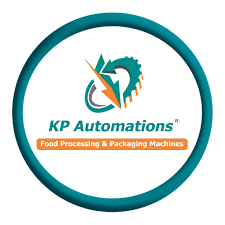Choosing the Right Pasta Machines: From Home Kitchens to Professional Production

Pasta is one of the most beloved foods in the world, with millions enjoying its endless variety of shapes, textures, and flavors. Behind every delicious pasta dish is a crucial tool: the pasta machine. Whether you're a home cook or a commercial producer, understanding the range and capabilities of pasta machines is essential for crafting quality pasta with ease and consistency.
What Are Pasta Machines?
Pasta machines are specialized devices designed to mix, knead, and shape pasta dough into various forms—spaghetti, fettuccine, lasagna sheets, and more. They range from compact manual rollers to fully automated industrial systems. While home models are ideal for small batches and personal use, commercial and professional pasta machines are built for higher capacity and continuous operation.
Types of Pasta Machines
-
Manual Pasta Machines
Ideal for home cooks and culinary enthusiasts, manual pasta machines are affordable, simple, and perfect for rolling and cutting dough. They’re best for small-scale production and classic pasta shapes. -
Electric Pasta Machines
These machines automate the rolling and cutting process, offering more efficiency than manual models. Many home users consider these the best pasta machine choice for their convenience and consistent results. -
Professional Pasta Machines
Designed for restaurants, caterers, and commercial kitchens, professional pasta machines are built with durable materials, high-output motors, and precision controls. They allow for continuous dough feeding, adjustable thickness settings, and a variety of pasta dies. -
Industrial Pasta Machines
These are used in large-scale production lines. They include mixers, extruders, dryers, and packaging units—perfect for pasta factories and large food businesses.
Features of the Best Pasta Machine
When searching for the best pasta machine, whether for home or professional use, consider the following:
-
Build Quality: Stainless steel construction ensures durability and hygiene.
-
Ease of Cleaning: Removable parts and dishwasher-safe components save time.
-
Versatility: A variety of dies and cutters allows for multiple pasta types.
-
Automation: Electric and professional models offer consistent thickness and shaping.
-
Speed and Capacity: Especially important for high-volume settings.
For home kitchens, the best choice might be a compact electric model with adjustable settings and easy operation. In contrast, restaurants or pasta shops often opt for professional pasta machines capable of producing a wide range of shapes with high efficiency.
Why Invest in a Professional Pasta Machine?
If you're in the foodservice industry or planning to launch a pasta business, a professional pasta machine offers numerous advantages:
-
Time Savings: Speeds up production while maintaining consistency.
-
Customization: Use custom dies to create unique pasta shapes.
-
Quality Control: Freshly made pasta on-site improves taste and texture.
-
Cost Efficiency: Reduces dependency on pre-packaged pasta.
Final Thoughts
The world of pasta machines is rich and varied, catering to everyone from the weekend cook to the seasoned chef and factory owner. Choosing the best pasta machine depends on your needs, volume, and desired pasta types. Whether you're rolling dough in a small kitchen or running a full-scale pasta operation, investing in a high-quality professional pasta machine can elevate your culinary offerings and streamline production.
- Business
- Research
- Energy
- Art
- Causes
- Tech
- Crafts
- crypto
- Dance
- Drinks
- Film
- Fitness
- Food
- Games
- Gardening
- Health
- Home
- Literature
- Music
- Networking
- Other
- Party
- Religion
- Shopping
- Sports
- Theater
- Wellness


